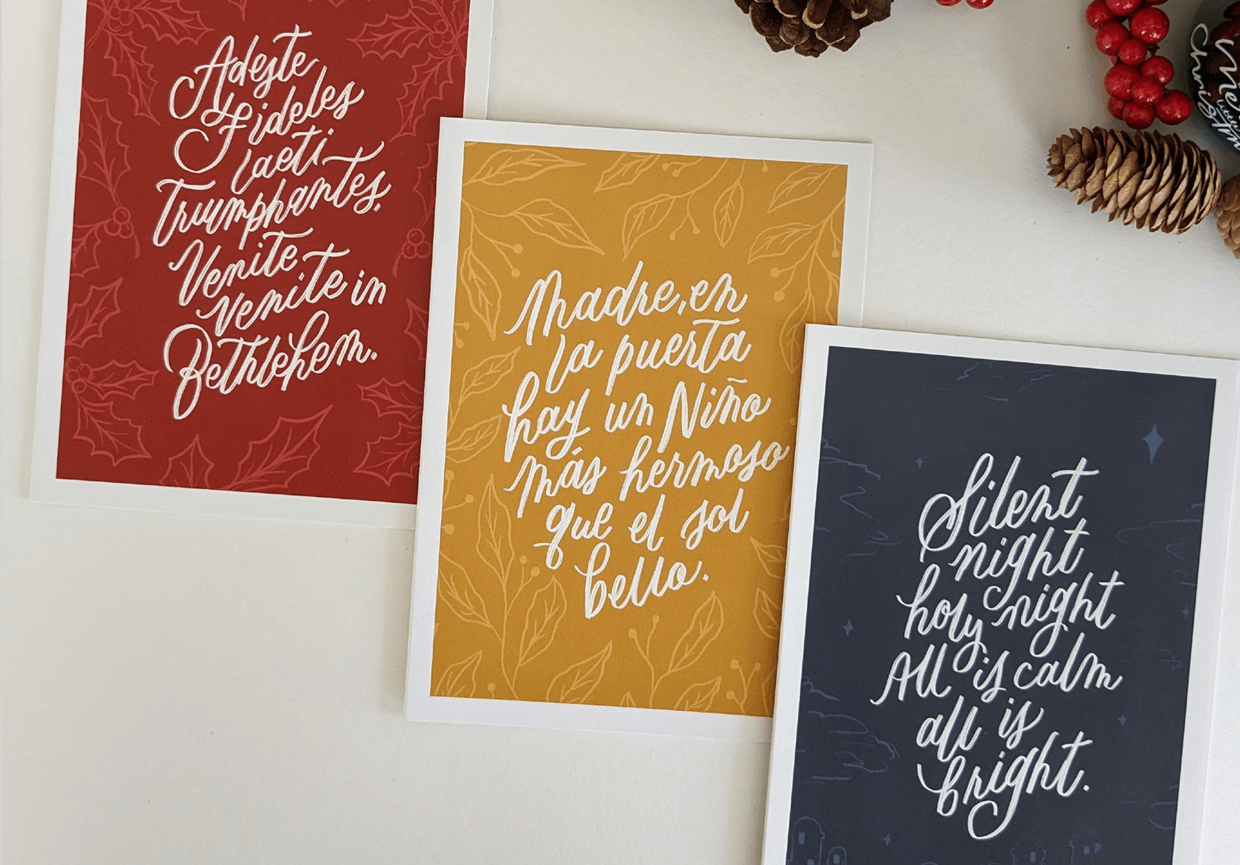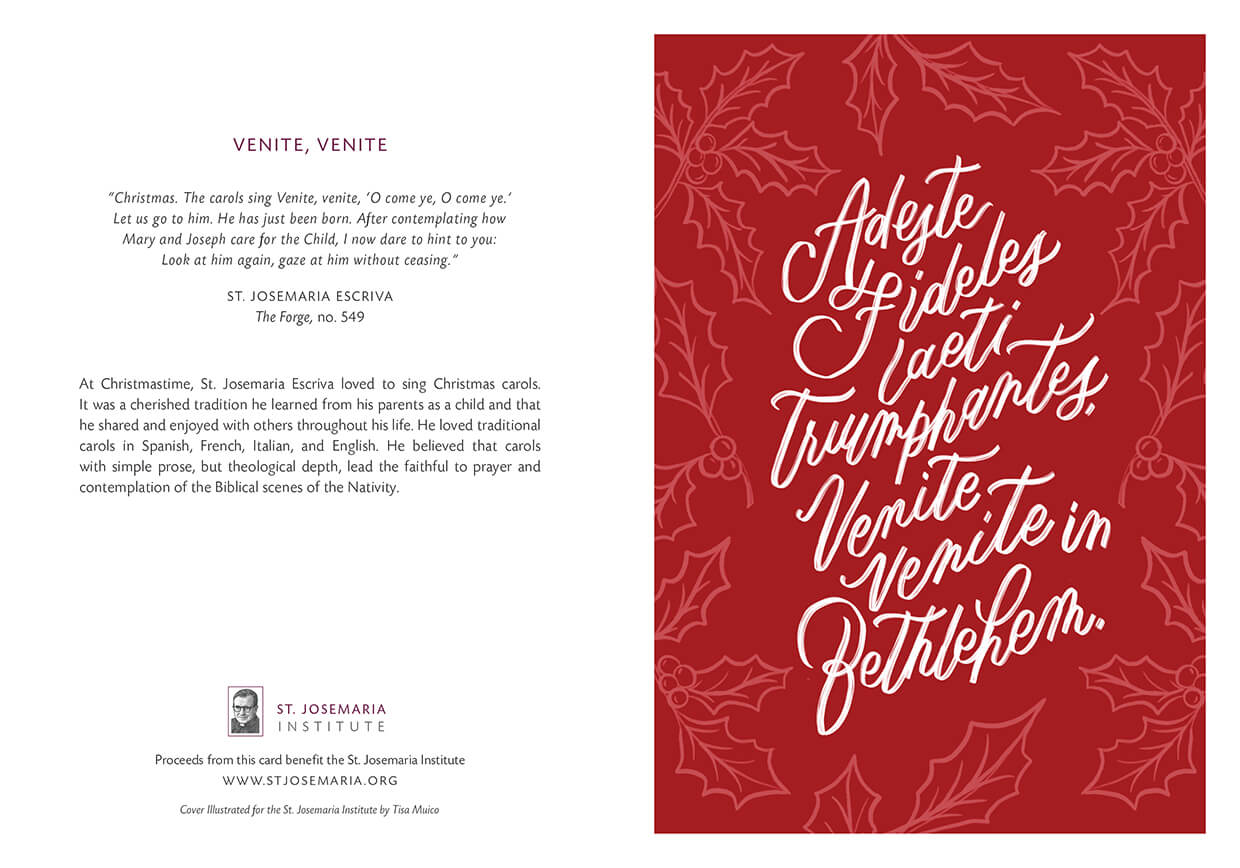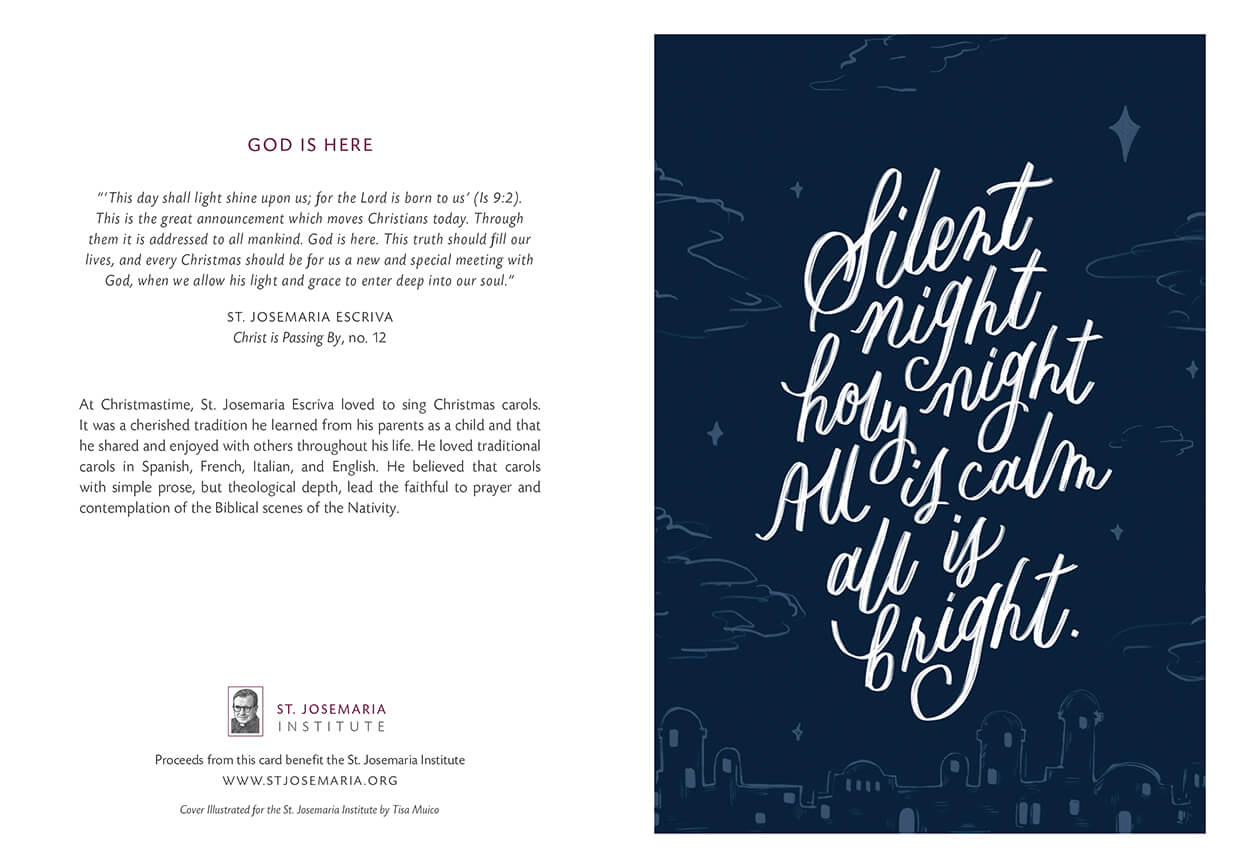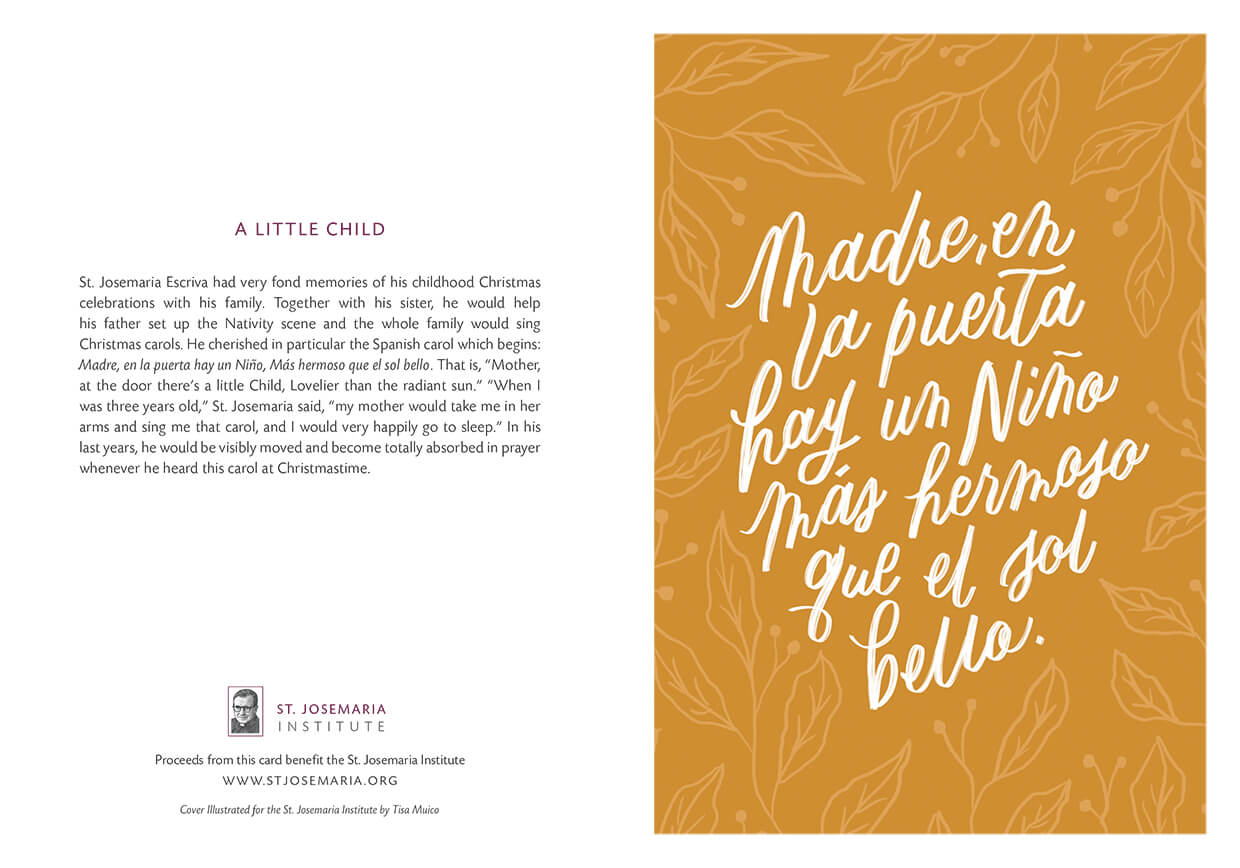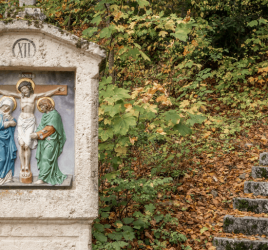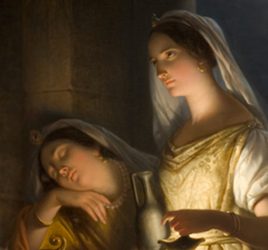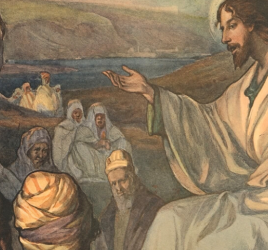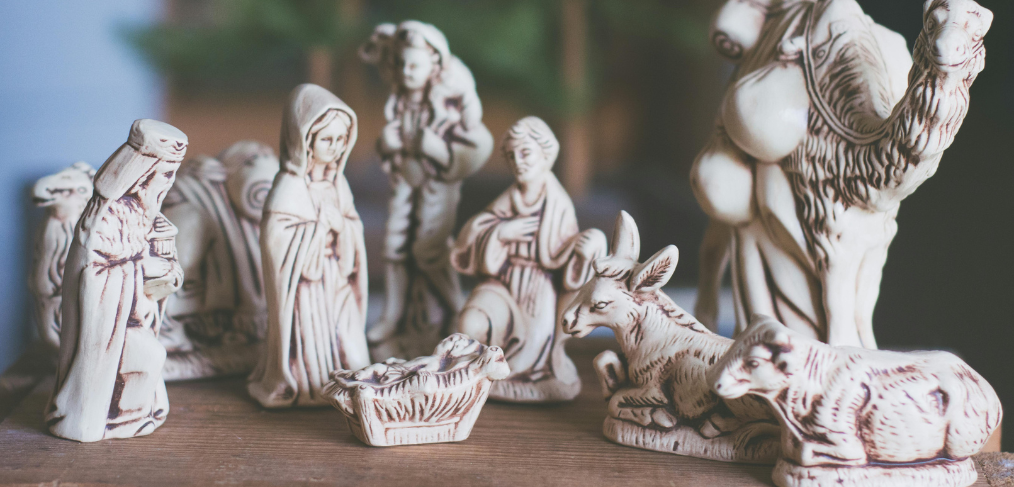
Carols at the Manger: St. Josemaria’s Devotion to the Child Jesus
“You must look at the Child in the manger.
He is our Love. Look at him, realizing that the whole thing is a mystery.”
St. Josemaria Escriva
Christ is Passing By, no. 13
St. Josemaria Escriva cherished Christmas carols as a way to unite the simplicity of childlike devotion with deep theological messages. Christmas, for him, was a time to celebrate the mystery of God’s love in a warm familial setting. He often encouraged members of Opus Dei during their get-togethers—where they shared stories, played games, and sang together—not to be ashamed of approaching the Infant Jesus with affection. “How can our hearts be so hard that we can get used to these scenes?” he asked. “God humbled himself to allow us to get near him, so that we could give our love in exchange for his, so that our freedom might bow, not only at the sight of his power, but also before the wonder of his humility” (Christ is Passing By, no.18).
In late 1947, as Christmas approached, St. Josemaria suggested to young members of Opus Dei to compose some Christmas carols that they could sing at their get-togethers. The simple yet profound carols they crafted often reflected on themes like the humility of the Christ Child, with recurring mentions of the ox and donkey. These humble animals, as St. Josemaria explained, were more than symbols, they were companions at the Christ Child’s manger. To this point, Pope Benedict XVI also explained, “The ox and the donkey are not a mere product of pious imagination but have become the companions of the Christmas event in virtue of the faith of the Church in the unity between the Old and New Testament. Isaiah 1:3 says: ‘The ox knows its owner, and the ass its master’s crib; but Israel does not know, my people does not understand.’ The Fathers of the Church saw these words as a prophecy announcing the new people of God, the Church formed of Jews and gentiles. In God’s eyes all men, Jews and pagans alike, were like oxen and donkeys, without reason or understanding. But the Child in the manger opened their eyes to understand the voice of their master, the voice of their Lord” (Pope Benedict XVI, Immagini di Speranza).
St. Josemaria’s love for the Christ Child was not abstract but profoundly personal and filled with tenderness. He often spoke of the Nativity with awe: “The greatness of this Child who is God! His Father is the God who has made heaven and earth and there he is, in a manger, ‘because there was no room at the inn’” (Christ is Passing By, no.18). For him, the Nativity was a moment to contemplate the boundless humility of God. “We stop in front of Mary, Joseph, and the Child, looking at the Son of God who has taken on our flesh” (Christ is Passing By, no. 12).
His affinity for Christmas carols and the Christ Child remained steadfast throughout his life. In December of 1974, six months before his passing, he was brought a figure of the Child Jesus during a get-together. St. Josemaria cradled the figure with affectionate reverence and addressed it “childishly.” Looking at the little figure in his hands, he said, “I’m not ashamed to kiss Baby Jesus like when I was little. Now that I’m on the point of leaving this world, I’m not at all ashamed to do it.”
For St. Josemaria, carols were more than festive songs; they were prayers in melody, invitations to meditate on the humility of God becoming man. He once reflected, “Christmas. The carols sing Venite, venite, ‘O come ye, O come ye.’ Let us go to him. He has just been born. After contemplating how Mary and Joseph care for the Child, I now dare to hint to you: Look at him again, gaze at him without ceasing” (The Forge, no. 549).
St. Josemaria’s love of Christmas carols continues to inspire people today, encouraging a celebration of Christmas filled with devotion, theological richness, and the joy of childlike faith. From the cradle at Bethlehem, Christ calls to each of us, whispering of a love that is both profound and simple.
This Christmas, bring the spirit of St. Josemaria’s love for Christmas carols into your home with the St. Josemaria Institute’s Christmas Carols Greeting Card Set. Inspired by the carols he cherished, these cards capture the simplicity and heartfelt devotion he encouraged. Perfect to share with family and friends this Christmas, visit our shop to order today!
Additionally, experience the carols composed by members of Opus Dei around the world. Listen to the recordings and download the sheet music to fill your home with the same melodies and themes of humility, joy, and innocence that St. Josemaria treasured.

